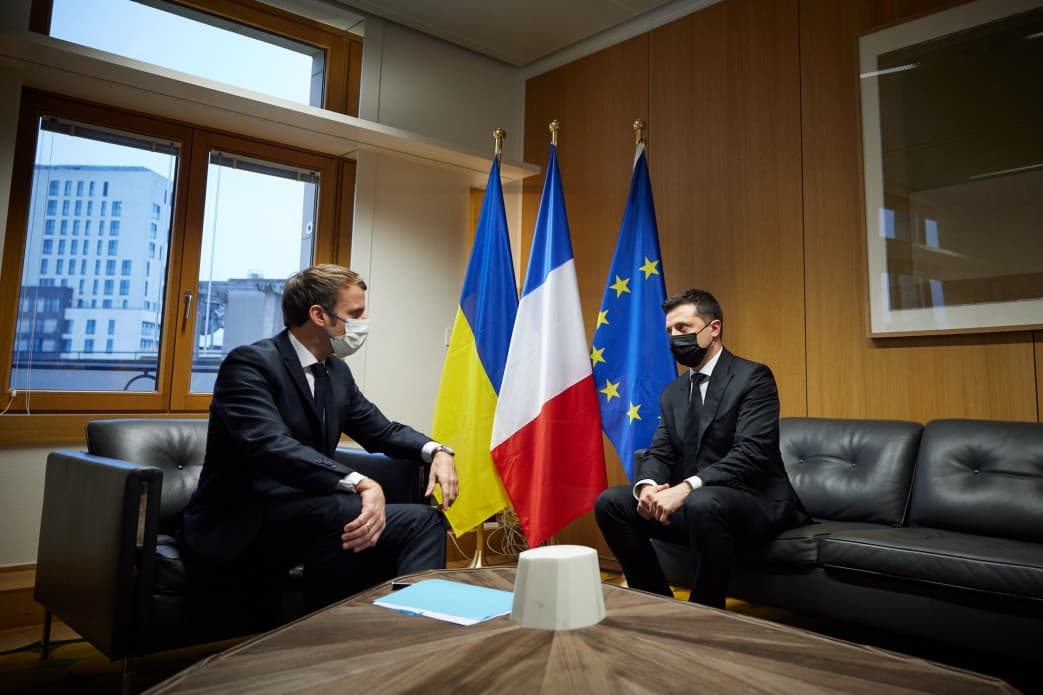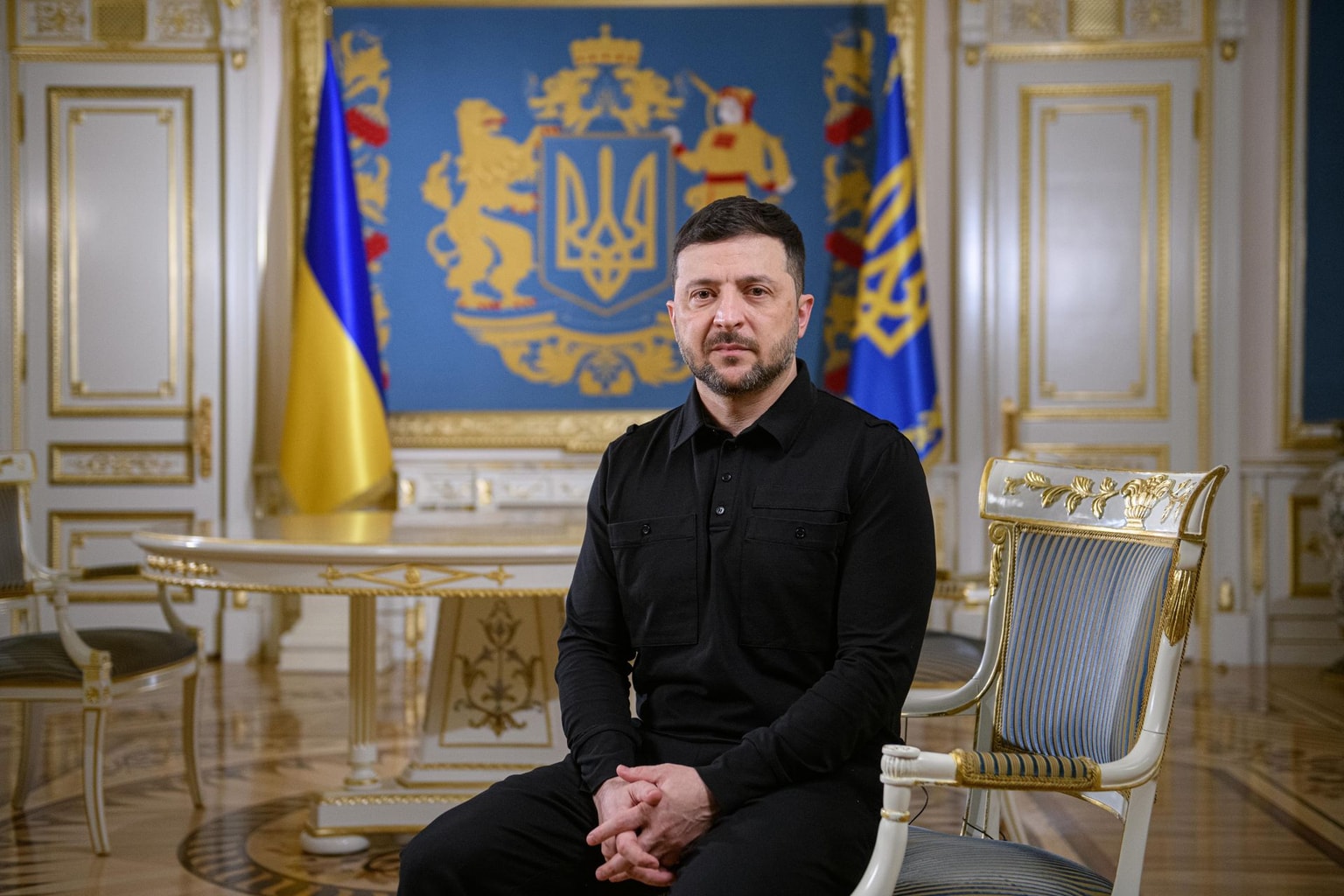Zelensky meets Macron, Scholz on sidelines of Eastern Partnership summit in Brussels

President Volodymyr Zelensky held meetings with the leaders of France and Germany to gather support for Ukraine on Dec. 15 in Brussels, on the sidelines of the European Union’s Eastern Partnership summit.
The Eastern Partnership is a joint initiative organized by the EU and dedicated to the development of the bloc’s relations with Ukraine, Armenia, Azerbaijan, Belarus, Georgia and Moldova.
Zelensky took advantage of the event to meet with his French counterpart Emmanuel Macron and German Chancellor Olaf Scholz, as Ukraine faces the threat of a full-fledged invasion by Russia.
“During the meeting with Emmanuel Macron and Olaf Scholz, (I) thanked (them) for their strong support for Ukraine against the background of the military threat of Russia, as well as for the consistent position of Germany and France in the Normandy Format. Confirmed willingness to continue our work,” Zelensky wrote on Twitter.
The leaders of the Normandy Format countries – Ukraine, France, Germany, and Russia – have not met since December 2019.
The group is one of two formats (the other being the largely defunct Trilateral Contact Group) set up to find a resolution to Russia’s war in eastern Ukraine. Lately, Russia has been stalling the meetings.
According to numerous reports from Ukrainian and foreign intelligence, Russia has massed between 94,000 and 100,000 combat-ready troops close to the Ukrainian border and in occupied areas.
Russia raised the stakes on Dec. 1. President Vladimir Putin demanded NATO guarantee that it wouldn’t expand to include Ukraine while launching military exercises with 10,000 troops in the country’s Southern Military District, which is adjacent to Ukraine, as well as in Russian-occupied Crimea.
Before the summit, European Commission President Ursula von der Leyen said the EU can adopt “unprecedented measures with serious consequences for Russia.″
The nature of the potential new sanctions has not been specified so far. Media reports indicated that they may include targeted financial penalties or the shutdown of the Nord Stream 2 gas pipeline to Germany, which has been built but not yet certified.
However, Bloomberg cited anonymous senior diplomats who said that several larger Western European countries are reluctant to threaten harsh sanctions against Russia.
According to the Dec. 15 article, Germany, France, Italy and Spain want to focus on dialogue with Moscow before creating a list of punishments. Germany reportedly fears that any plans will be leaked, costing leverage against Putin, who will be given the provocation he’s seeking. The countries are also reportedly worried about economic ties with Russia.
The diplomats cited in the article also said that this approach was opposed by several unnamed European countries who want to create a strong deterrent to Russian violence.










